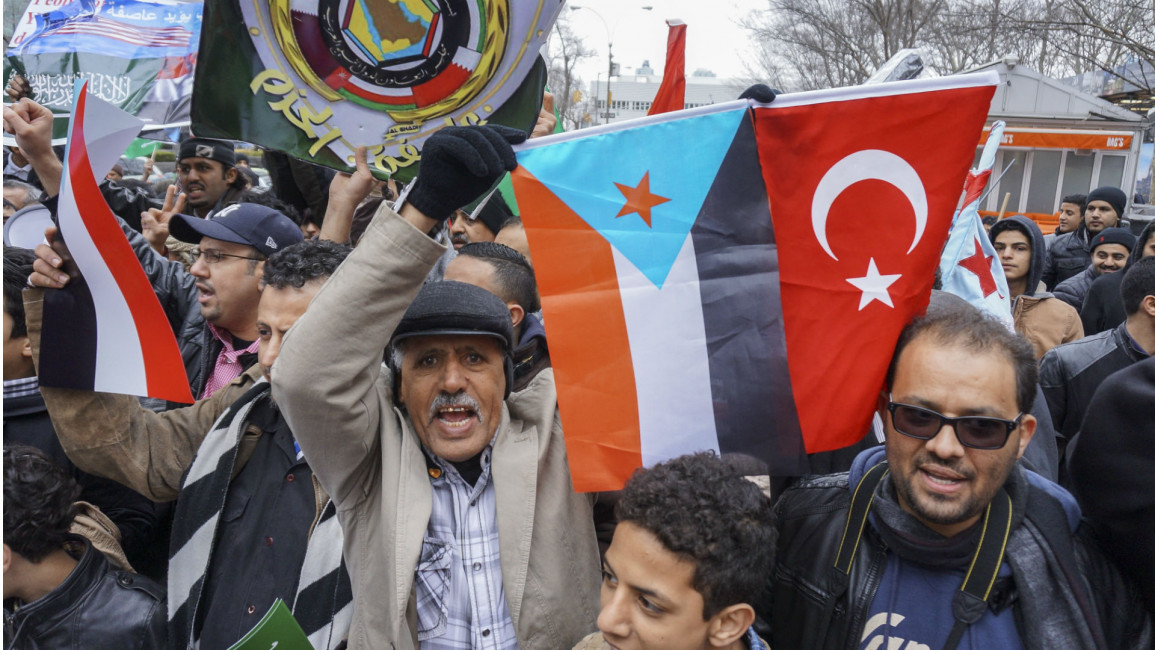UN vote expected on Yemen conflict
Diplomatic manoeuvring over the conflict in Yemen continued Friday at the United Nations, with Gulf Arab diplomats pressing Russia on Friday to support a resolution circulated by Jordan on Monday.
The resolution, drafted by Gulf states, demands that the Houthis withdraw from the Yemeni capital Sanaa and all other areas seized since 2013, and puts an embargo on the Houthi leaders, as well as their allies, who include former Yemeni president Ali Abdullah Saleh.
Abdelmalik al-Houthi, the leader of the predominantly Zaydi Shia movement, and Ahmed Ali Saleh, the ex-leader's son, are added to a sanctions list in the new document, while there is no reference to the Saudi-led military strikes or Russian calls for humanitarian pauses in the fighting that has already left more than 540 dead in the past three weeks, according to the World Health Organisation.
There have been attempts to give unspecified concessions to Russia, who have the power of veto at the Security Council, a diplomatic source, who did not wish to be named, told al-Araby al-Jadeed.
But this did not include the removal of al-Houthi from the sanctions list, which is believed to put the Russians in a difficult position.
Earlier in the week Russian foreign minister Sergei Lavrov had said that he was “dismayed, to put it mildly” by the military campaign being undertaken by a nine-country coalition led by Saudi Arabia.
“We value our relations with Saudi Arabia, and with other coalition members, but they came to the Security Council post-factum, and started asking for approval of what they had begun,” Lavrov said on Monday.
Pakistan rejects entry into conflict
Meanwhile, Pakistan's parliament unanimously adopted a resolution turning down Saudi Arabia's request for it to join its coalition in Yemen in a military capacity.
“[The] Parliament of Pakistan... underscored the need for continued efforts by the government of Pakistan to find a peaceful resolution of the crisis,” the resolution said.
“[Parliament] desires that Pakistan should maintain neutrality in the Yemen conflict so as to be able to play a proactive diplomatic role to end the crisis.”
Pakistan's parliament has seen five days of debate on the issue, with most lawmakers insisting that Pakistan should not involve itself in the conflict, despite its close ties to Saudi Arabia.
The parliamentary vote also came after a visit to Pakistan by Iranian foreign minister Mohammed Javad Zarif, where he laid out a four-stage plan for talks, and called for an immediate ceasefire.
Iran is accused of backing the Houthis with arms, something the Iranian government denies.
US secretary of state John Kerry had criticised Iran's involvement with the Houthis on Thursday, saying that the United States would not accept foreign interference in Yemen.
“There have been – there are, obviously – flights coming from Iran. Every single week there are flights from Iran and we've traced and know this,” Kerry told PBS television.
Red Cross and UN aid flights
The Red Cross and UN flew medical aid into Yemen's capital Friday after southern city Aden was battered by the heaviest night yet of Saudi-led air strikes targeting Shiite rebels.
The International Committee of the Red Cross said it dispatched an aircraft to Sanaa, its first aid shipment since the campaign against rebels began last month.
"This is the first ICRC plane to have landed in Sanaa. It is loaded with 16 tonnes of medical aid," said Marie Claire Feghali, the organisation's spokeswoman in Yemen.
The UN's children agency UNICEF said it had delivered 16 tonnes of aid by air to Sanaa on Friday.
It said the shipment contained medical supplies for 80,000 people as well as food supplements for 20,000 children.
Airstrikes pound Aden
Saudi airstrikes continued, despite the diplomatic deals being brokered at the UN, with the most intense night of strikes since the conflict began overnight.
“In Aden, the raids began at around 10 pm (1900 GMT) on Thursday and were the most violent since the start of 'Operation Decisive Storm',” a resident of Yemen's second city told AFP.
Houthi-Saleh forces have continued their advance on Aden in the south and Shabwa in the east despite the air campaign against them.
Last night's strikes in Aden targeted areas taken by the rebel alliance, which include some of the most elite units of the Yemeni army, such as the municipal headquarters of Dar Saad at the city's northern entrance.
The May 22 stadium in the centre of the city was also hit, along with targets in Ataq, the capital of Shabwa, which Saleh's forces entered unopposed on Thursday.
It appears as though the Houthi-Saleh forces are changing their tactics in Aden, moving away from coastal areas such as Tawahi, Mualla and Khormaskar, and instead moving inland to Dar Saad and Sheikh Othman, relatively far away from the coasts where coalition warships are located.
In Shabwa, a tribal source told al-Araby al-Jadeed that the tribe has vowed to eliminate the Houthis and Saleh's forces from their province, saying that there had been “coordination” with Operation Decisive Storm.



